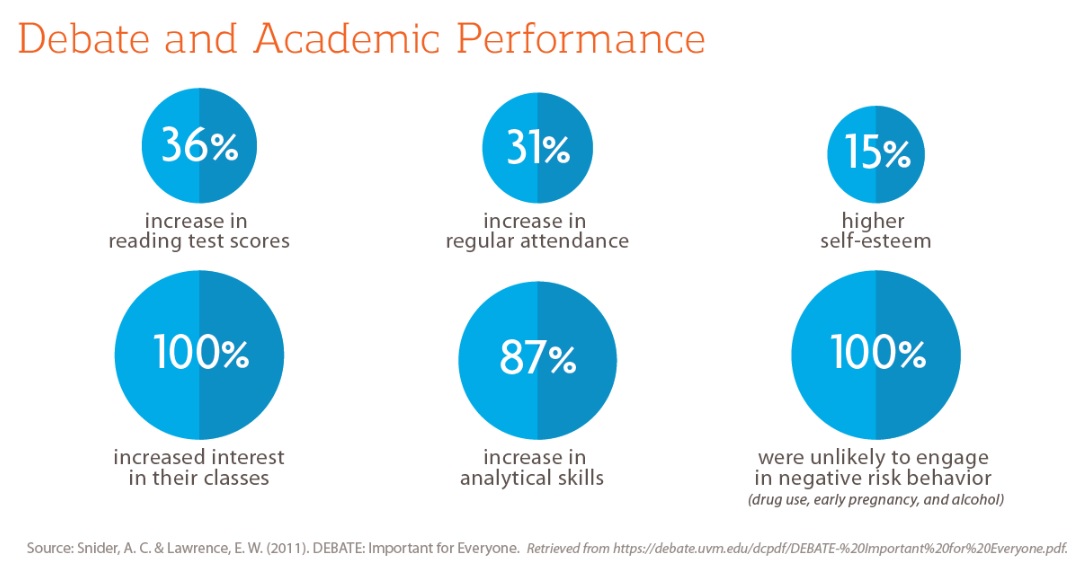Unlock Your TEFL Classroom's Potential with Interesting Debate Topics
As a TEFL educator, one of the most important things you can do for your students is to provide them with opportunities to practice their English speaking skills. While traditional classroom activities like vocabulary drills and grammar exercises are necessary, they can be dry and unengaging for students. That's where debate topics come in.
Debating is an engaging and interactive way for students to practice their speaking skills while also improving their critical thinking, research, and persuasion abilities. In this blog, we'll explore the benefits of debating in a TEFL classroom and provide some interesting debate topics for students of different levels.
Why Debating is good for practice English speaking skills?
You might have come across courses that you have pursued before like Master of Arts in Education with TESOL, that debate is a great way for ESL students. It’s definitely an excellent way for students to practice English speaking skills. This requires them to think quickly and respond to their opponent’s arguments, which can be challenging but also very rewarding.
It also helps students develop their critical thinking skills. They must research and analyze different points of view on a topic, weigh the pros and cons, and come up with a well-intentioned argument. This is a valuable skill that will serve students well in their academic and professional careers.
According to speechanddebate.org data, it’s also been proven that debate can improve student’s life not just academically but in overall aspects of their life as well.

Debating is also a fun and engaging activity that can help students to build their confidence and improve their social skills. It's an opportunity for them to express their opinions and engage with others in a respectful and constructive manner. This can be especially beneficial for students who are shy or have trouble speaking up in class.
In addition to improving speaking and critical thinking skills, debating also helps students to develop their persuasion abilities. They must learn how to present their arguments in a clear and convincing manner, using evidence and logic to support their position. This is an important skill for anyone who needs to persuade others, whether it's in a sales pitch, a job interview, or a political campaign.
How to introduce debate topics to your TEFL students?
Before introducing debate topics to your students, it's important to establish some ground rules. Make sure your students understand that debates should be conducted in a respectful and constructive manner. Encourage them to listen to their opponents' arguments and respond thoughtfully, rather than attacking or insulting them. You may also want to establish a time limit for each speaker, to ensure that everyone has an opportunity to participate.
When selecting debate topics, it's important to choose ones that are relevant to your student's interests and experiences. This will make the activity more engaging and meaningful for them. You can also choose topics that are related to current events or issues in your students' communities.
For A1-A2 YOUNGER STUDENTS
For younger or lower-level students, it's important to choose debate topics that are simple and easy to understand. Here are some examples:
- Should students wear uniforms to school?
- Is it better to have a big family or a small family?
- Should children be allowed to have cell phones?
- Will computers and robots replace teachers?
- Do computer games teach any useful skills?
- Should children work for their pocket money?
- Are dogs better than cats?
These topics are easy to understand and relate to and can spark interesting discussions among younger students.
For B1-B2 TEENAGE AND OLDER STUDENTS
For teenage and older students, you can choose more complex debate topics that require research and critical thinking. Here are some examples:
- Should college be free?
- Is social media more harmful than helpful?
- Should the legal drinking age be lowered?
- Should COVID vaccinations be compulsory for all?
These topics are more challenging but also more rewarding, as they require students to think critically and present well-reasoned arguments.
For C1-C2 OLDER TEENAGERS AND ADULTS
For advanced students, you can choose even more complex and controversial debate topics. Here are some examples:
- Should the death penalty be abolished?
- Is climate change caused by human activity?
- Should guns be banned?
- Is science the new religion?
- Should future parents be able to genetically design their own babies?
- Can the news be unbiased?
These topics require in-depth research and analysis, and can lead to lively and engaging debates among advanced students.
Debating is good for practice English speaking skills
Debating is an excellent way for students to practice their English speaking skills while also improving their critical thinking, research, and persuasion abilities. When you become an ESL teacher with our Master of Arts in Education with TESOL, these tips will certainly help you. By choosing relevant and engaging debate topics, you can make this activity a fun and rewarding experience for your students.
So why not try introducing some debate topics in your TEFL classroom today?




